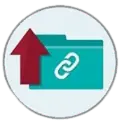As a HubSpot Technical Blog Writer who's into coding, I know it's a top skill to have. Coding uses languages to tell a computer what to do. This powers the sites, apps, and software we all use. It opens many doors in tech and other fields. By coding, you can create, find new solutions, and turn ideas into reality.
Coders are highly paid because of their valuable skills. You can turn your project into cash, share it freely, or just do it for fun. Even a little coding knowledge helps you understand technology better.
Key Takeaways
- Coding is a valuable skill that can open doors to opportunities across various industries.
- The tech industry offers lucrative salary packages for professionals with coding skills.
- Coding enables you to create, innovate, and solve problems in new ways.
- Learning the basics of computer programming can help you better understand the growing technology landscape.
- Coding allows you to bring your ideas to life, whether for personal projects or commercial ventures.
Imagine the chances opening up by learning to code. It doesn't matter if you're just starting or are already deep into it. The right tools can make your coding better and your projects more successful.
What is Coding?
Coding is like giving instructions to a computer through programming languages. These instructions create websites, apps, and software. By writing and testing lines of code, coders build systems that do many tasks.
Coding Explained
Coding is about turning human ideas into computer language. Programmers use languages like Java, Python, and JavaScript to solve problems or automate tasks. Their code tells computers to do specific things, like show information or process data.
Benefits of Learning to Code
Learning to code has personal and professional upsides. Coding skills let you participate in the tech job market. They also let you make your own tech projects and applications, bringing your ideas to reality. Understanding tech lets you navigate the digital world better.
The tech industry is growing fast, which means the need for coding and programming skills is also rising. Jobs for developers will increase by 22% by 2030, more than other fields, says the U.S. Bureau of Labor Statistics. Coding opens doors to well-paid and diverse career paths.
Why Learn to Code?
Coding opens many doors, not only in tech but also in various fields. It lets you create and solve problems in new, innovative ways. In today's world, technology is more important than ever.
Coding shows you can understand complex ideas and solve issues. These skills are really valuable. They make people want to hire you.
Coding Helps Build Professional Skills
The starting salary for a programmer is more than double the national average. Jobs for developers are growing fast. By learning to code, you can turn your ideas into real projects.
Whether for money, sharing on the internet, or just for fun, coding makes it possible. It also helps you understand the tech world better.
Coding Can Help You Earn More
The tech field offers high salaries and coding can get you there. Software developers and database administrators are in high demand. This means good job opportunities.
Coding Lets You Create Things
Coding brings your ideas to life. You can sell your project or share it with the world for free. It's a powerful skill for being creative and problem-solving.
Coding Helps You Understand the World Around You
Technology is everywhere. So, knowing how to code helps in many jobs. Even basic programming knowledge can improve your tech understanding.
Coding is Fun
Many people find coding fun and rewarding. It's not just for work. Families can code together and it helps in many different fields.
How to Start Coding
Thinking about why you want to learn to code is key. It helps you pick the best language for your needs. You can check what projects you might like to do and the goals you have. Then, it's easier to choose a language like HTML, CSS, JavaScript, Python, or Java.
Figure Out Why You Want to Learn to Code
Coding opens many doors in different fields. You should consider why you're learning it. Maybe you want to make your apps, boost your career, or just learn how tech works. Knowing your reason makes learning easier.
Choose Which Coding Language You Want to Learn First
There are tons of languages out there. You should pick one that fits your goals. For starters, look into HTML, CSS, JavaScript, Python, or Java. They are good for learning and very popular. Think about the projects you want to do and the places you'd like to work.
Take Online Courses
The internet makes learning to code easy. Sites like freeCodeCamp, Codecademy, and Pluralsight have great online courses. They offer projects, quizzes, and expert tips to teach you from the ground up.
Watch Video Tutorials
Video tutorials on places like Udemy, Coursera, and YouTube are also helpful. They add to your learning with demonstrations and step-by-step guides. They're another way to make learning to code fun.
Read Books and Ebooks
Don't forget about coding books and ebooks. They are a treasure for learning programming. There's great content for languages like JavaScript and Python. Books like "Eloquent JavaScript" and "Python Crash Course" are popular for beginners.
Use Tools That Make Learning to Code Easier
Tools like text editors and IDEs can make your coding life easier. They help you write code better and faster. Also, using version control and debugging tools is smart. They fix mistakes and track your progress.
With all these tips and some hard work, anyone can learn to code well. Stick with it, stay patient, and keep coding. This is how you get good at programming languages and problem-solving.
Essential Coding Tools for Beginners and Professionals
Coding tools for Windows help in creating and managing code. These vary from basic editors to advanced IDEs. They make coding easier for software projects on Windows.
Using coding software on Windows boosts work quality and speed. It includes helpful tools like auto-complete and debugging. These make coding quicker and reduce mistakes. Also, they help teams work together smoothly on big projects.
Text Editors
Notepad and TextEdit come already installed on most devices, but they're basic. For a better experience, use editors like Notepad++, Sublime Text, and Atom. They add more features for coding.
Notepad++ is a popular choice for its many plugins and highlighting. Sublime Text comes with unique options like editing with multiple cursors. Atom is free and gives you a lot of freedom to adjust the interface.
Integrated Development Environments (IDEs)
IDEs offer a full suite for coding. They have editors, tools to check your code, and more. For Windows, you might like Visual Studio Code, IntelliJ IDEA, or PyCharm. These IDEs are great for different coding languages.
Visual Studio Code is powerful and works on all major platforms. IntelliJ IDEA is for Java and has smart code-writing features. PyCharm is solely for Python and supports its special features well.
Version Control Systems
Version control systems help you keep tabs on code changes. They're great for team projects. Git and Subversion (SVN) are popular choices. Git is well-known for working with GitHub and GitLab. SVN is also good for managing code changes but has a different setup.
Debugging Tools
Debugging tools are essential for finding and fixing code errors. They let you check your code step by step. Browser tools or standalone tools can help with this. Browser tools are for making web apps better. Standalone tools offer more options and work with specific languages.
Popular Text Editors
Text editors let you write and edit code. Notepad (for Windows) and TextEdit (for macOS) are simple text editors. For more features, many coders prefer Notepad++, Sublime Text, and Atom.
Notepad++
Notepad++ is free to use and open-source. It has many plugins to help with coding. With features like highlighting and folding, it's great for coding on Windows quickly.
Sublime Text
Sublime Text works on every major platform. It looks modern and has advanced tools like editing with multiple cursors. Many coders love its sleek design and ability to edit windows at the same time.
Atom
Atom comes from GitHub and is also free. It can be tailored to suit you with themes and add-ons. Easy for beginners yet powerful, it's recommended for those starting to learn programming.
Recommended IDEs
Integrated Development Environments (IDEs) are key for computer programming. They provide a full set of tools needed. IDEs include a code editor, a compiler or interpreter, and a debugger. For Windows users, some top IDEs are available, including
Visual Studio Code
,
IntelliJ IDEA
, and
PyCharm
Visual Studio Code is free and open-source, made by Microsoft. Known for its wide range of plugins, it's great for debugging and works well with version control. IntelliJ IDEA is the go-to IDE for Java. It has special features like helping you write code smarter and supports many Java frameworks. For Python, there's PyCharm. It helps with code analysis, debugging, and works closely with Python's libraries for science.
| IDE | Key Features | Pricing |
|---|---|---|
| Visual Studio Code | Open-source, cross-platform, plugin ecosystem, debugging tools, version control integration | Free |
| IntelliJ IDEA | Advanced code refactoring, intelligent code completion, support for Java frameworks | Free Community Edition, $533-$693 annually for Ultimate Edition |
| PyCharm | Dedicated Python IDE, code analysis, debugging, integration with Python scientific libraries | Free Community Edition, $213-$690 annually for Professional Edition |
Version Control Systems
Version control systems help developers track changes in their code over time. They make it easy to work together and go back to old versions. Git and Subversion (SVN) are two popular systems used for this.
Git
Git is a kind of version control system that's spread out. It lets developers see and track changes to the code. They can work together on projects and go back to earlier versions easily. Many platforms, like GitHub and GitLab, use Git. Its special way of handling projects has made it the top choice for many developers.
Subversion (SVN)
Subversion (SVN) is different from Git. It has a more central way of working. This can help projects that are older or just starting with sharing code. SVN is known for being straightforward and is often chosen by those not yet familiar with version control.
Debugging Tools
Debugging tools are key for developers to find and fix code errors. There are browser developer tools and standalone debuggers. They let developers go through the code step by step, set stopping points, and check what the code is doing while it runs.
Browser Developer Tools
Tools in Chrome, Firefox, and Edge are examples of browser developer tools. They help with finding and fixing errors in web applications. These tools can look at the structure of a page, check network activity, and tackle JavaScript errors. This real-time information helps developers make their sites work better for users.
Debuggers
Standalone debuggers work closely with certain programming languages or development tools. They're designed to support a specific way of working with your code. These tools aim to make the debugging process quicker and easier. They come with features like setting stops in the code, checking variable values, and suggesting ways to make your code better.
Other Essential Tools
Aside from text editors and IDEs, there are more coding tools to boost your work. Package managers like npm for JavaScript help manage project dependencies easily. Code linters (ESLint and Pylint) and formatters (Prettier and Black) improve your code’s quality and look. They check for errors and keep your style neat.
Documentation generators such as Doxygen and Sphinx make creating guides easy. They pull information from your code to build detailed docs. This helps everyone understand and update the project better.
Package Managers
Package managers (npm and pip) make handling project dependencies a breeze. They ensure you have all needed tools without the hassle. This way, you can focus on coding, not managing libraries.
Code Linters and Formatters
Code linters and formatters boost code quality and make it uniform. Linters check for errors, helping you follow good practices. Formatters keep your code looking nice and save time on manual edits. This boosts your software development productivity.
Documentation Generators
Good documentation is key for understanding and updating software. Documentation generators take the hard work out of making guides. They turn code details into readable documents. This is great for team work and project longevity.
Learning Resources
The internet is full of coding learning resources. These help people at any level learn to code. For example, online coding platforms like freeCodeCamp, Codecademy, and Pluralsight (formerly Code School) offer interactive courses. They cover many programming languages and concepts.
Programming books are another great way to learn. Titles like "The C Programming Language" and "Eloquent JavaScript" provide detailed explanations. They also include exercises to practice coding. Video tutorials are very popular too. Sites like Udemy, Coursera, and YouTube have many videos. These range from easy introductions to complex topics. They fit various coding education needs.
Conclusion
Coding is a key that opens many doors in different fields. It allows both new and experienced users to improve their skills. Using the best tools can make coding more efficient and productive.
Want to make websites, apps, or big software projects? Learning these tools is vital. Today, there are countless online resources to help you grow and be creative.
Technology is becoming more important every day. If you work hard and use the right tools, great opportunities in tech and coding await you. So, take the first step towards becoming a skilled coder and influencing the future.
FAQ
What is coding and why is it important?
Coding is the way we talk to computers. It's like giving them a set of instructions. This skill is not just for tech jobs. It's used in many fields. Learning to code helps you solve problems and think in new ways.
What are the benefits of learning to code?
Learning to code has many advantages. You can build new things and understand tech better. It can increase your job opportunities and income. Plus, coding is fun and rewarding.
What are the essential tools for coding?
For coding, you need text editors, IDEs, version control systems, and more. These tools make coding easier and your work more efficient. They help you create software and apps.
What are some popular text editors for coding?
Good text editors for coding include Notepad++, Sublime Text, and Atom for Windows. They make writing code easier with features like highlighting and auto-complete. This makes the coding process smoother.
What are some recommended IDEs for coding?
For coding on Windows, consider Visual Studio Code, IntelliJ IDEA, PyCharm. These IDEs are packed with features. They help with writing code, testing, and fixing bugs. A good IDE makes your coding experience better.
What are the main version control systems used in coding?
Git and Subversion (SVN) are common tools for managing code changes. They help teams work together and track code history. With them, you can easily go back to an older version of your work.
What are the key debugging tools for coding?
When hunting for code bugs, you use browser tools or special debuggers. These tools let you check your code step by step. They help to find and correct mistakes.
Where can I find resources to learn coding?
To learn coding, look online. There are platforms like freeCodeCamp, Codecademy, and Pluralsight. You can also find books and video tutorials. These resources offer a range of lessons for different levels.
Source Links
- https://blog.hubspot.com/website/how-to-start-coding
- https://flatironschool.com/blog/best-websites-to-practice-coding-for-beginners/
- https://www.commonsense.org/education/best-in-class/the-best-block-based-coding-tools-for-beginners
- https://www.computerscience.org/resources/what-is-coding-used-for/
- https://www.rasmussen.edu/degrees/technology/blog/why-learn-to-code/
- https://www.linkedin.com/pulse/should-you-learn-code-zulfikar-adamu-phd
- https://bootcamp.berkeley.edu/blog/what-is-coding-key-advantages/
- https://www.simplilearn.com/tutorials/programming-tutorial/coding-for-beginners
- https://bootcamp.cvn.columbia.edu/blog/coding-for-beginners/
- https://www.techradar.com/best/best-text-editors
- https://learn.onemonth.com/the-best-text-editors-for-beginners/
- https://www.techrepublic.com/article/best-ide-software/
- https://www.codegrip.tech/productivity/top-10-ide-every-developer-should-know/
- https://www.simplilearn.com/tutorials/python-tutorial/python-ide
- https://www.atlassian.com/git/tutorials/what-is-version-control
- https://runtimerec.com/best-version-control-systems/
- https://www.lambdatest.com/blog/best-debugging-tools/
- https://moldstud.com/articles/p-debugging-tools-for-web-programmers-a-comprehensive-overview
- https://saucelabs.com/resources/blog/best-debugging-tools
- https://www.forbes.com/sites/forbestechcouncil/2019/02/22/want-to-learn-coding-check-out-these-resources-recommended-by-tech-experts/
- https://www.computerscience.org/resources/computer-programming-languages/
- https://www.techtarget.com/searchsecurity/tip/5-essential-programming-languages-for-cybersecurity-pros
- https://www.microverse.org/blog/9-free-coding-resources-for-beginners
- https://www.geeksforgeeks.org/coding-standards-and-guidelines/
- https://verdantfox.com/blog/how-i-went-from-no-coding-experience-to-coding-for-a-living-in-one-year-a-guide





